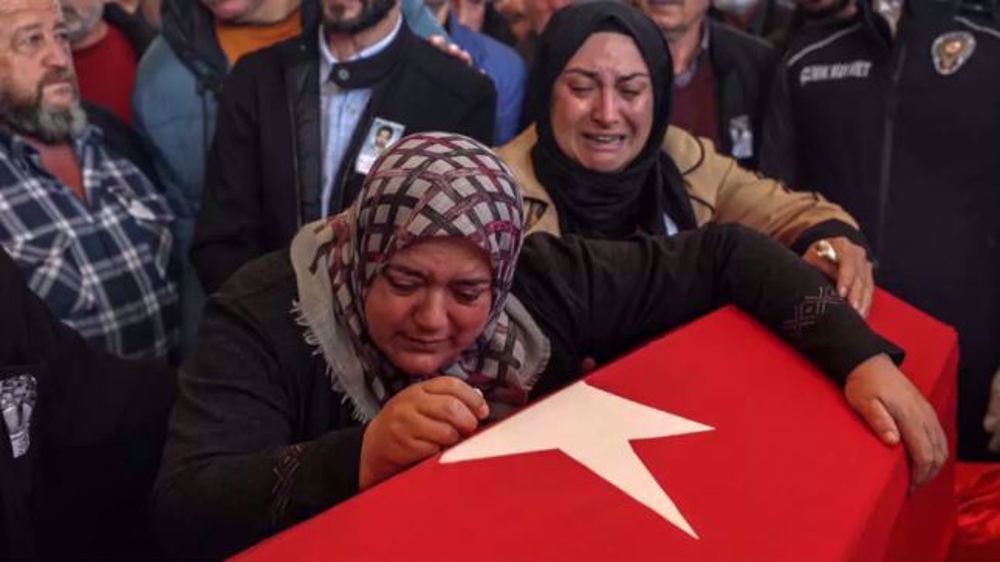Turkey detains 1,098 over alleged links to militant outfits, failed coup in single week
Turkey says in the course of a single week it has detained 1,098 people either for their suspected links to terrorist groups or over having affiliation to the US-based cleric Fethullah Gulen, who is blamed by Ankara for purportedly masterminding and orchestrating last year’s failed putsch against the government of President Recep Tayyip Erdogan.
According to a statement released by the Ministry of Interior on Monday, during the course of last week, Turkish authorities arrested 831 people for their suspected ties to the Gulen movement, which is banned by Ankara and labeled as the Fethullah Terrorist Organization (FETO).
The arrests are part of a huge police crackdown following last July’s coup attempt. More than 50,000 people have so far been jailed and over 150,000 including judges, teachers, police and other state servants have been dismissed or suspended in the controversial purge, which is strongly condemned by local and international rights groups. Seventy-six-year-old Gulen has flatly rejected Ankara’s allegations.
The written statement also said that another 213 had been detained for their alleged membership in the outlawed Kurdistan Workers' Party (PKK), which has been declared by the government as a terrorist organization.
A shaky ceasefire between the PKK, which has been calling for an autonomous Kurdish region since 1984, and the Turkish government collapsed in July 2015. Since then, Turkish ground and air forces have been carrying out operations against the PKK positions in the country’s troubled southeastern border region as well as northern Iraq and Syria, claiming to have killed thousands of militants, although rights campaigners and pro-Kurdish political parties say civilians have been killed in the operations, too.
The PKK, in return, has mounted its reprisal attacks on Turkish security forces. More than 40,000 people have been killed in the conflict over the past few decades.

The statement further read that another 46 people had been arrested over purported links to the Takfiri Daesh terrorist group, which is mainly active in Syria and Iraq, while eight more were nabbed for suspected ties to “leftist terrorist groups.”
Earlier this month, the government extended the state of emergency for a fourth time in the Anatolian country, almost a year after it was imposed in the wake of the botched mid-July military putsch. Each emergency rule lasts for three months. Ankara claims that the purge is necessary to confront security challenges facing Turkey and to curb supporters of Gulen. The European governments have in multiple occasions voiced alarm at the scale of the crackdown.
Malaysia working on resolution to expel Israel from United Nations
Israeli military made no territorial gain in Lebanon: Report
VIDEO | 70 Palestinians killed in Israeli strikes across Gaza Strip
US Election Day: First votes cast in New Hampshire
Nov. 4: ‘Axis of Resistance’ operations against Israeli occupation
Britons demand release of pro-Palestine activists
VIDEO | Israel's unwinnable war in Lebanon
Non-aligned nations condemn Israeli violation of Iran's sovereignty















 This makes it easy to access the Press TV website
This makes it easy to access the Press TV website